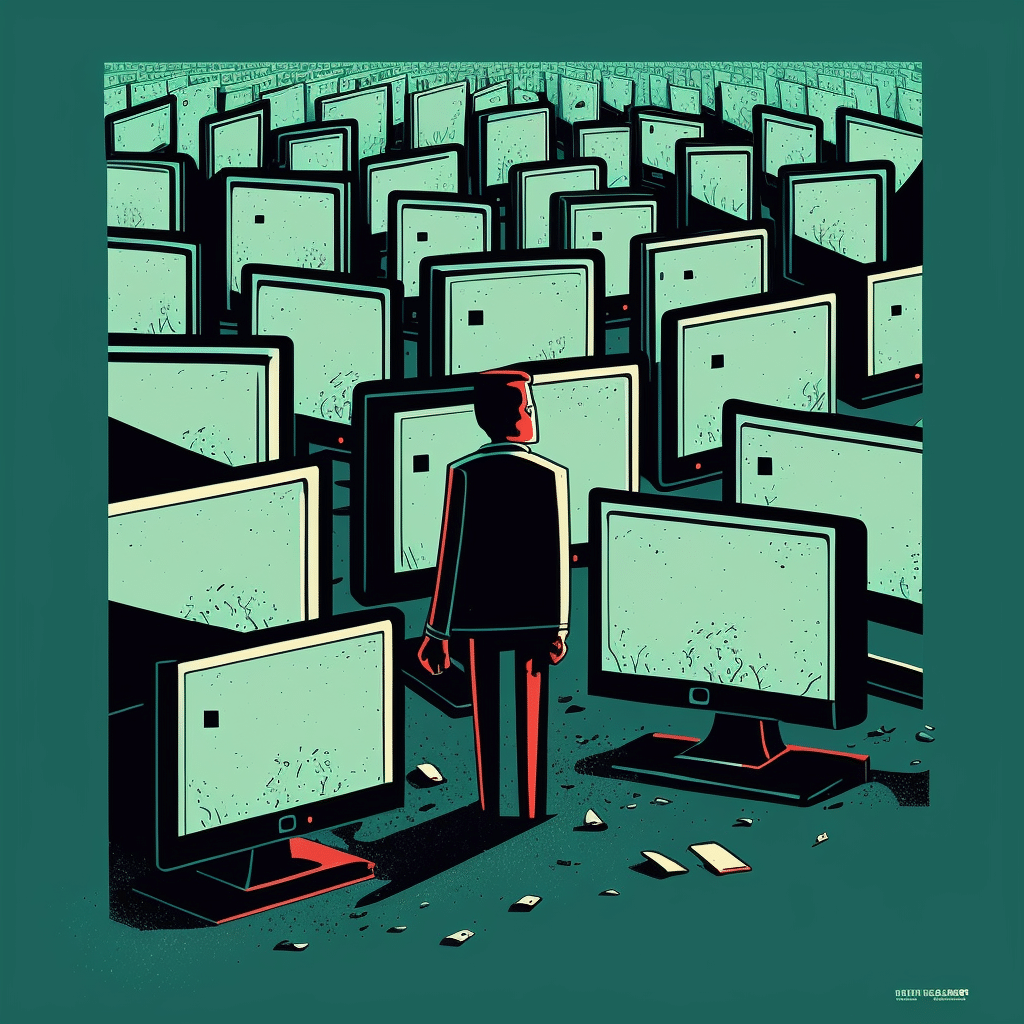
In today’s world, public education systems have grown into immense entities. And, in understanding not just these entities but also new innovations, changes, and shifts in practice, we often lack systemic thinking frameworks.
Asking fundamental questions on why, how, and what is critical to understanding the system and shifts within it. Inspired by frameworks like Simon Sinek’s Golden Circle, these will help give us a structure to address the system’s shortcomings and determine how new innovations like AutoGPT, ChatGPT, Midjourney and Runway can benefit students and teachers and be used purposefully and wisely.
The Power of Unconventional Ideas: Four-Day Workweek in Education
The “why” of the current system is rooted in the misguided quest for uniformity and standardization, leading to a system that suppresses the potential of students and teachers. The “how” to change it, could lies in the conscientious implementation of innovations like ChatGPT, which, when combined with other tools, saves time, enables personalization, and enhances future prosperity—ultimately resolving crucial issues educators face – not having enough time.
Going against the common logic of taking away time to achieve results, a recent UAE study demonstrated that a four-day workweek has enhanced time management and social skills within the education sector, highlighting the potential of novel approaches to reshaping education by going against conventional wisdom. By shortening the workweek, students, teachers, and families have reported drastically improved work-life balance, increased participation in extracurricular activities, and better academic outcomes.
In Sharjah, where the four-day school week was launched in January 2022, the Sharjah Private Education Authority (SPEA) surveyed the impact of this change. The results showed that 77% of 31,198 families observed improved academic performance, 78% reported enhanced social skills, 74% experienced better stress management, and 75% saw increased extracurricular activity participation. Furthermore, teachers also reaped the benefits, with 90% reporting an improved work-life balance and more quality time with their families.
These outcomes validate the effectiveness of innovative educational approaches and emphasize the need for a broader discussion on implementing data-driven, meaningful changes beyond marketing slogans and superficial adjustments. As we move forward, it is crucial to embrace bold ideas and adapt our educational systems to serve better the needs of students, teachers, and society. Often these ideas will be from left field and not follow orthodoxy – and that’s ok!
Exploring Alternative Educational Models and AI’s Impact on Various Industries
AI has also begun to play a significant role across various industries. AI-assisted communication has helped professionals manage their time more effectively. For example, in healthcare, professionals have delivered more empathetic and effective patient care with AI assistance. Similar improved outcomes have been seen in manufacturing (automation is increasing production efficiency, reducing waste, and enhancing quality control, leading to cost savings and improved products) and finance (risk assessment, fraud detection, and algorithmic trading, resulting in more secure and efficient financial services).
The software engineering sector has experienced a dramatic productivity boost through AI-assisted coding. However, this has led to massive tech layoffs in 2023 as a warning sign in job shifts and refinement. The demand for professionals with advanced software skills grows as the focus shifts from writing code to managing projects. This underlines the importance of adapting to the ever-evolving technological landscape, developing relevant skills, and incorporating emotional intelligence (EQ) into educational programs, which we embrace at THINK Global School within our teacher-led module design.
Regarding being more purposeful in using AI and being more systematic about its use, the why, and the purpose of implementing AI in education. Is this to enhance personalized learning experiences? Improve efficiency? Or provide equitable access to high-quality education for all students, regardless of their background or circumstances? Relating to the how, will AI can be implemented in education through various methods, such as adaptive learning platforms? Will students be allowed to create AI-assisted content? Or will AI be used as a virtual learning assistant? And finally, the, what. What will the end result of implementing AI in education be? Will it be a more engaging, inclusive, and effective learning environment? Or will it aim to give students the skills needed to thrive in a rapidly changing world?

As AI advances and traditional education systems become increasingly outdated, parents and educators can explore and should be on the lookout for not just greater emergence of home-schooling alternatives but also:
- The Growth of Miniature Academies: Intimate educational environments fostering adaptability and personalized attention for each student. One notable example is Acton Academy, a learner-driven micro-school network that began in Austin, Texas, and has since expanded to more than 200 locations worldwide and is in 25 countries.
- The Rise Virtual Learning Platforms: Harnessing the vast potential of the digital world to provide students with access to a wealth of knowledge beyond the traditional classroom. Our partners at Headrush for example, have allowed our students to flourish through innovative online project management.
- Increasingly Compact Educational Communities: Offering refuge from overwhelming bureaucracy and creating a focused, navigable learning space such as our own Think Global School; another example is the Sudbury Valley School, a close-knit community of around 150 students and staff members. Both are compact in size, allowing for increased personalization and adaptability in the learning process, as students can explore their interests and passions at their own pace.
Recognizing Our Role in the System and Embracing Change
To achieve significant change, we must recognize our position within the system. Innovations may seem like irritants or minor adjustments for those benefiting from the current system. However, these changes can be transformative for those facing barriers to better service. The democratising potential of AI and future technology is enormous if used efficiently, and in addition, we must construct clear feedback loops within assigned and proven frameworks to improve delivery, simple and complex.
By leveraging the synergies of frameworks like Simon Sinek’s Golden Circle (the why, how, and what), we can pave the way for an education system that genuinely serves students, teachers, and society at large and add some structure to understanding these new innovations that are rocking the education landscape.










